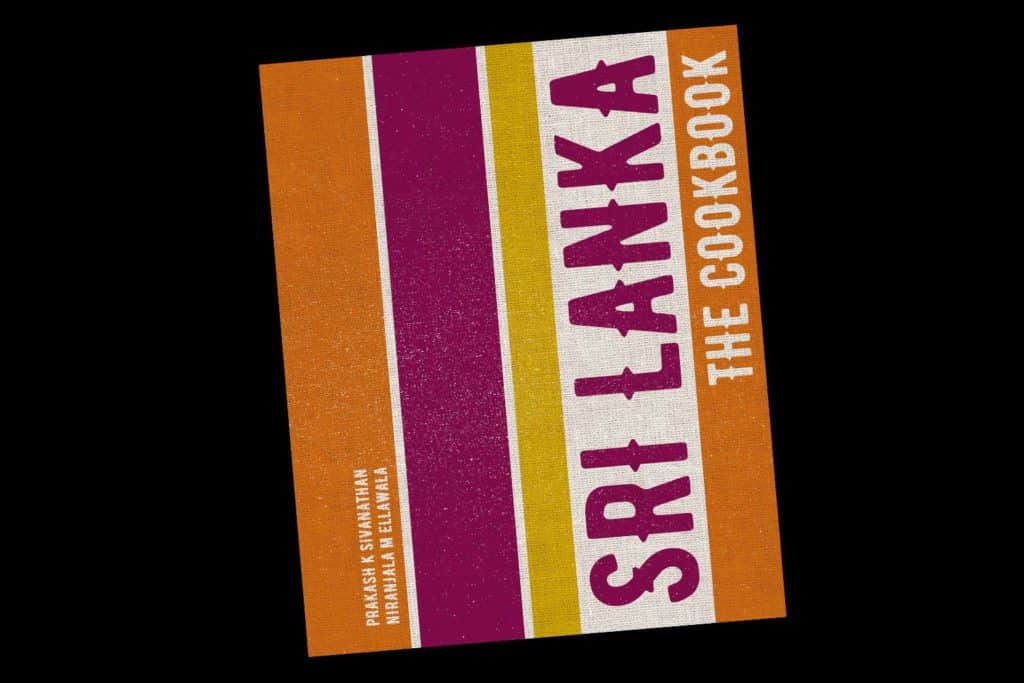A review copy of Sri Lanka the Cookbook was sent to me for free, courtesy of The Quarto Group and Frances Lincoln. All opinions expressed below are my own.
Husband and wife team Prakhash Sivanathan and Niranjala Ellawalla pen this volume of boldly flavoured recipes, complemented with photos by Kim Lightbody, to represent their native Sri Lankan cuisine. He is Tamil, hailing from the North of the country, while she is Sinhalese from the South. Their experience and expertise of the nation's vast culinary repertoire culminates in Sri Lanka the Cookbook, which captures the vibrant quilt of curries, sambals, condiments, pickles, and more from this most underrated of cuisines.
This is not a vegan, nor even vegetarian cookbook, but many of the recipes are suitable for both or can be easily adapted. A dietary key marks which recipes contain fish or meat, and in addition to this, recipes are marked as Tamil or Sinhalese in origin. This is a chance to celebrate some unfamiliar flavours with regional variations.
Recipe styles and methods vary. The collection includes recipes that are straightforward and with uncomplicated instructions and ingredients. Additionally there are a few more in depth preparations requiring more precision, including specialist equipment the average buyer of the book will not have. I do not state this as a criticism, however, because to me all good cookbooks feature more than recipes; these are the methods that give insight into the heritage of a region. If you are like me and read cookbooks like novels, never with the intention to cook everything but with a desire to learn as much as possible, then you will appreciate the few pages to which I'm referring.
Recipe reviews
Meen kulambu is a tamarind fish curry made rich and creamy with coconut milk, spiced with always glorious curry leaves. All ingredients but the fish are vegan, and with a vegan fish substitution this is easily my favourite recipe of all I have sampled thus far.
The aubergine and tamarind curry that is Kathirikai pirattal is not entirely dissimilar to meen kulambu, only it is marginally more sour from extra tamarind and with a less punchy spice combination. There are two preparation options for the eggplant: one to pan fry and the other to bake. I adjusted the preparation slightly by roasting the aubergine at maximum heat to extract the vegetable's signature smokiness brought out by this method. That charred flavour is an excellent contrast to the tangy fullness of tamarind and coconut milk in this dish.
Mallum, also mallung, are dishes of dry fried vegetables, spices, and coconut that are finished with a sprinkling of fresh lime juice. There are five mallung recipes in this cookbook, of which I prepared pol mallung and Kale mallung. The former is predominantly coconut, with a slew of spices up it. The latter is comprised of finely shredded kale and, yes, more spices. This is the first time in history my partner has declared a kale dish something he would like to eat a second time.
Achcharu is a date and shallot pickle, sweet with a slight bitter edge (from mustard seeds) and spiciness imparted by the hefty quantities of fresh ginger. The authors accurately state in the book that this pickle "will enliven even the simplest platefuls." It enlivens your face too, with pungent gingery burns and smiles. There is a recipe for this outstanding and easy to prepare condiment at the end of this review.
My only criticism of the book is I would like to see some suggested menus in order to get an idea of how a typical Sri Lankan meal might be put together and served. But that is only a minimal complaint and not one to put anyone off purchasing a book that is a wonderful introduction to the vibrant cuisine of Sri Lanka. The country has just been knocked up a few pegs on my top must visit destinations list.
Sri Lanka the Cookbook is available to purchase from May 7th, 2017.
Achcharu (Date and shallot pickle)
In Sri Lanka, many vegetables are turned into zingy pickles, from the common carrot to the exotic ambarella sour plum. Here, the sweet, soft dates are a beautiful match for the sharp shallots, creating a spicy side dish that will enliven even the simplest platefuls.
- Makes 300g/10 ½ oz
- 5 garlic cloves, peeled
- 7.5cm (3-inch) piece of ginger, peeled and roughly chopped
- 2 tablespoon mustard seeds
- 2 tablespoon chilli powder
- 250g (9oz/1 ⅔ cups) dates (200g/7oz deseeded and halved and 50g/2oz finely chopped)
- 1 teaspoon salt
- 250ml (9 fl oz/generous 1 cup) red wine vinegar
- 2 tablespoon sugar (white or brown)
- 250g (9oz) small shallots
- 3 medium carrots, cut into thin strips
- 200g (7oz) green chillies, slit lengthways with seeds in
- Put the garlic, ginger, mustard seeds, chilli powder, 50g chopped dates, salt and 125ml of vinegar in a food processor. Blitz until you have a thick paste and set aside.
- Put the remaining vinegar in a deep stainless steel saucepan, add the sugar and bring to the boil.
- Add the shallots and cook for 2 minutes, then remove with a slotted spoon and set aside. Add the carrots and cook for 3 minutes, then remove. Add the chillies and cook them for 2 minutes, then remove. Finally, add the dates and cook for 2 minutes, then remove.
- Add the paste to the reduced vinegar and bring to the boil. Add all the cooked vegetables, mix well, then take off the heat and let it cool.
- When cool, place the pickle in a sterilized airtight jar and refrigerate. It will keep for 2 months.
Recipe extracted from Sri Lanka: The Cookbook by Prakash K Sivanathan and Niranjala M Ellawala, published by Frances Lincoln, an imprint of The Quarto group.
